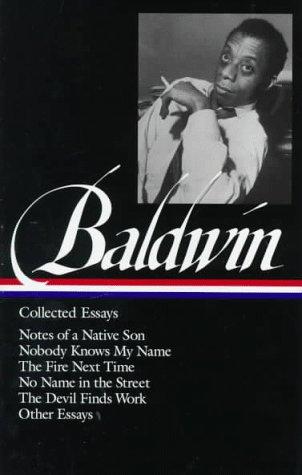Hardcover, 869 pages
English language
Published 1998 by Library of America.

Hardcover, 869 pages
English language
Published 1998 by Library of America.
Novelist, essayist, and public intellectual, James Baldwin was one of the most brilliant and provocative literary figures of the postwar era, and one of the greatest African-American writers of this century. A self-described "transatlantic commuter" who spent much of his life in France, Baldwin joined a cosmopolitan sophistication to a fierce engagement with social issues.
Here are the complete texts of his early landmark collections, Notes of a Native Son (1955) and Nobody Knows My Name (1961), which established him as an essential intellectual voice of his time, fusing in unique fashion the personal, the literary, and the political.
The classic The Fire Next Time (1963), perhaps the most influential of his writings, is his most penetrating analysis of America's racial divide, and an impassioned call to "end the racial nightmare...and change the history of the world." The later volumes No Name in the Street (1972) and The Devil Finds …
Novelist, essayist, and public intellectual, James Baldwin was one of the most brilliant and provocative literary figures of the postwar era, and one of the greatest African-American writers of this century. A self-described "transatlantic commuter" who spent much of his life in France, Baldwin joined a cosmopolitan sophistication to a fierce engagement with social issues.
Here are the complete texts of his early landmark collections, Notes of a Native Son (1955) and Nobody Knows My Name (1961), which established him as an essential intellectual voice of his time, fusing in unique fashion the personal, the literary, and the political.
The classic The Fire Next Time (1963), perhaps the most influential of his writings, is his most penetrating analysis of America's racial divide, and an impassioned call to "end the racial nightmare...and change the history of the world." The later volumes No Name in the Street (1972) and The Devil Finds Work (1976) chart his continuing response to the social and political turbulence of his era.
A further thirty-six essaysnine of them previously uncollected - include some of Baldwin's earliest published writings, as well as revealing later insights into the language of Shakespeare, the poetry of Langston Hughes, and the music of Earl Hines.